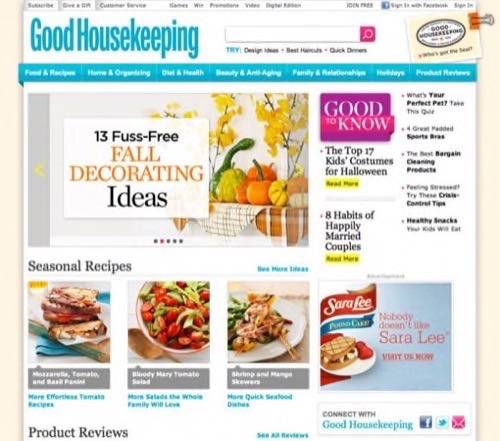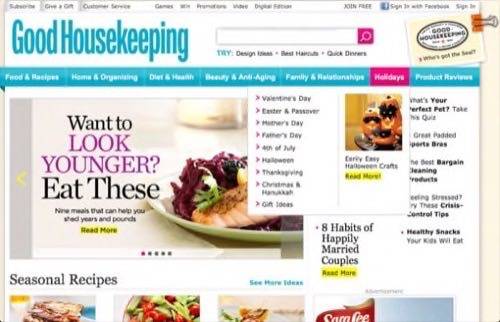HTML5 is the next version of the Web’s markup language and is enjoying increasing popularity amongst the developer community. The level of interactivity it enables has probably been the most talked about feature of HTML5, largely due to Apple’s controversial refusal to allow Adobe’s Flash technology onto its mobile devices. As a result, HTML5 is seen as the best way to get interactivity into mobile browsers. The other big benefit of HTML5 though is that it enables developers to build cross-platform websites. One website that will work just as well across devices – whether PC, smartphone, tablet or another of the increasing array of Internet-connected devices on which people consume media.

It’s for the cross-platform utility that magazine publisher Hearst Magazines has announced a plan to convert all of its websites into HTML5 sites, starting with Good Housekeeping.
The benefits to Hearst are obvious: one site per magazine title that works across devices, instead of multiple sites for each device. But there are benefits to Hearst’s readers too, primarily that the user experience will be mostly the same for a particular website – no matter which device is used to access it.
The first Hearst website to undergo an HTML5 redesign was Good Housekeeping, the venerable women’s magazine founded back in 1885 (you wouldn’t get away with launching that brand name nowadays!).
I tapped into my inner 1950s American housewife and checked out the new site on 3 devices: PC, iPhone and iPad. It displayed very well on each device, including the drop down menus – often a good test of mobile website functionality.
PC version

Perhaps being overly boastful, Hearst claims that HTML5 is “more comprehensively used in this site [Good Housekeeping] than practically any other media site that we know of.” I’m not sure if that’s true, especially since Boston Globe just launched an HTML5 redesign.
Hearst plans to implement HTML5 redesigns for the rest of its network over the next 18 months.
This is a great initiative by Hearst and we expect to see many other media companies roll out HTML5 websites over the next couple of years.
iPhone version

iPad version


















